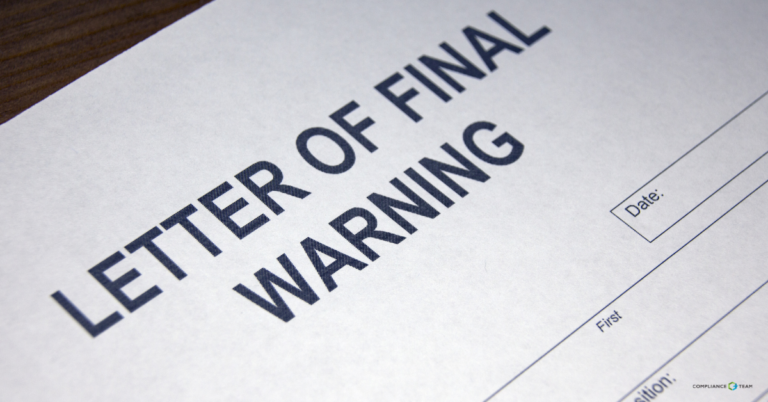FDA Warning Letters: How To Respond

In the complex landscape of regulatory oversight in the United States, the Food and Drug Administration (FDA) plays a crucial role in safeguarding public health. One of the key tools at its disposal is the issuance of warning letters to companies found in violation of regulatory standards.
These warning letters serve as a means of communicating with businesses, alerting them to observed violations and outlining corrective actions necessary for compliance. Understanding the significance of FDA warning letters is essential for both businesses and consumers, as they directly impact product safety, quality, and regulatory compliance.
What Is The Purpose Of FDA Warning Letters?
FDA warning letters are formal communications sent to companies, typically following an inspection or investigation, where significant violations of regulatory requirements are identified.
The primary purpose of these letters is to notify companies of observed violations and prompt corrective action to bring products into compliance with applicable laws and regulations.
By issuing warning letters, the FDA aims to protect public health by addressing issues related to product safety, efficacy, labeling, manufacturing practices, and more.
Understanding FDA Regulation Laws
The FDA derives its authority to issue warning letters from various statutes, including the Federal Food, Drug, and Cosmetic Act (FD&C Act) and other relevant regulations. These laws empower the FDA to regulate the manufacturing, distribution, and marketing of foods, drugs, medical devices, cosmetics, and other products under its jurisdiction.
When the FDA identifies violations of these laws, it has the legal authority to take enforcement actions, including issuing warning letters, imposing fines, seizing products, and pursuing injunctions or criminal prosecution in severe cases.
Common Violations Leading to Warning Letters
Warning letters can address a wide range of violations across different industries regulated by the FDA. Some common areas of non-compliance that may result in warning letters, let’s take a look.
Current Good Manufacturing Practice (cGMP) Violations
Companies involved in the manufacturing of FDA-regulated products must adhere to cGMP requirements to ensure product quality and safety. Violations of cGMP regulations related to facilities, equipment, personnel, processes, or documentation can lead to warning letters.
Misbranding and Labeling Violations
FDA regulations require accurate and truthful labeling of products, including proper ingredient listings, health claims, and warnings. Misbranding violations, such as misleading labeling or inadequate labeling of allergens, can prompt warning letters.
Adulteration
Products that are adulterated, meaning they are contaminated, contain unsafe substances, or are otherwise unfit for consumption, are subject to regulatory action by the FDA. Adulteration violations can lead to warning letters and product recalls to protect consumers from harm.
Failure to Obtain Required Approvals
Certain products, such as new drugs, medical devices, or food additives, require FDA approval or clearance before they can be marketed or sold. Companies that fail to obtain necessary approvals may receive warning letters for marketing unapproved or uncleared products.
How Do FDA Warning Letters Impact A Business?
Receiving an FDA warning letter can have significant implications for businesses. Here are some of the major impacts on a business.
Reputational Damage
Public disclosure of an FDA warning letter can tarnish a company’s reputation and erode consumer trust in its products. Negative publicity resulting from warning letters can harm brand image and long-term market viability.
Regulatory Scrutiny
Companies subject to FDA warning letters may face increased regulatory scrutiny, including more frequent inspections, audits, and oversight. Failure to address underlying compliance issues can lead to further enforcement actions, such as product seizures or injunctions.
Financial Costs
Addressing compliance deficiencies identified in warning letters can incur substantial financial costs for businesses, including remediation efforts, legal fees, product recalls, and potential fines or penalties for non-compliance.
Market Access Restrictions
In some cases, FDA warning letters may result in market access restrictions, such as import alerts or product detention, preventing affected companies from distributing their products until compliance issues are resolved.
How Consumers Can Protect Themselves
While FDA warning letters primarily target businesses, their ultimate aim is to protect consumers and safeguard public health. By addressing violations and promoting regulatory compliance, warning letters help prevent the distribution of unsafe or misbranded products that could pose risks to consumers.
Transparency in the regulatory process, including the public disclosure of warning letters, enables consumers to make informed decisions about the products they purchase and consume.
How To Respond To FDA Warning Letters
Upon receiving an FDA warning letter, companies are expected to respond promptly and comprehensively to address the identified violations. Key steps in responding to warning letters may include:
Acknowledgment and Assessment
Companies should carefully review the contents of the warning letter, assess the identified violations, and develop a thorough understanding of the underlying compliance issues.
Corrective Action Plan
Developing a comprehensive corrective action plan is essential for addressing the identified violations and preventing recurrence. This plan may involve process improvements, personnel training, facility upgrades, product recalls, or other remedial measures as necessary.
Communication with FDA
Open and transparent communication with the FDA is critical throughout the response process. Companies should maintain ongoing dialogue with FDA officials, provide timely updates on corrective actions, and ensure compliance with regulatory requirements.
Documentation and Follow-Up
Proper documentation of corrective actions taken in response to warning letters is essential for demonstrating compliance with FDA regulations. Companies should maintain detailed records of remediation efforts and follow up with the FDA as necessary to confirm resolution of identified issues.
Have You Received An FDA Warning Letter?
FDA warning letters serve as a vital regulatory tool for promoting compliance with laws and regulations governing the safety, quality, and efficacy of FDA-regulated products. By addressing violations and prompting corrective action, warning letters contribute to consumer protection and public health while holding businesses accountable for their regulatory obligations.
Understanding the significance of FDA warning letters and their implications for businesses and consumers is essential for fostering a culture of compliance and ensuring the integrity of the regulated marketplace.